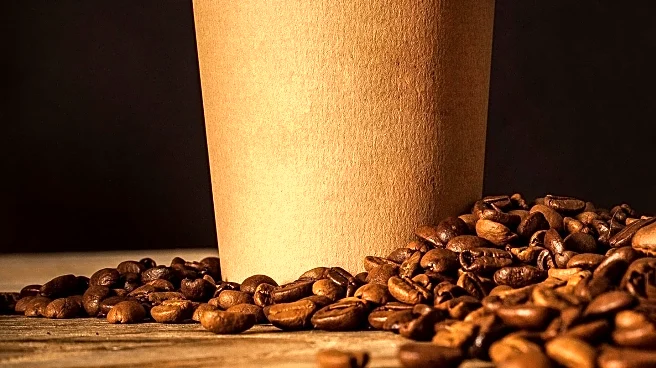What is the story about?
What's Happening?
A recent analysis of U.S. adults' habits and body composition suggests a positive correlation between higher coffee or caffeine intake and increased limb muscle mass relative to body size. The study, which utilized data from the National Health and Nutrition Examination Survey (NHANES) spanning 2011-2018, involved 8,333 participants. Researchers measured muscle mass using DXA scans and expressed it as the appendicular skeletal muscle mass-to-BMI ratio (ASMBMI). The findings indicate that individuals who consumed more coffee had a higher ASMBMI compared to non-coffee drinkers, with the highest coffee group showing a 13% increase. However, this association was not observed in participants with obesity, possibly due to biological factors such as chronic inflammation.
Why It's Important?
The study highlights coffee's potential role in supporting muscle health, which is crucial for maintaining independence and reducing the risk of falls and fractures as people age. The findings could influence dietary recommendations and encourage coffee consumption as part of a muscle-friendly routine. However, the lack of association in individuals with obesity suggests that coffee alone may not be sufficient for muscle maintenance in this group, emphasizing the importance of comprehensive health strategies including resistance training and adequate protein intake.
What's Next?
Further research is needed to explore the mechanisms behind coffee's impact on muscle mass and to determine whether these findings can be generalized to other populations. Additionally, the study's cross-sectional nature means it cannot establish causation, so longitudinal studies could provide more definitive insights. Health professionals may consider these findings when advising patients on dietary habits, particularly those looking to maintain or improve muscle mass.
Beyond the Headlines
The study raises questions about the broader implications of coffee consumption on health, including its potential anti-inflammatory and antioxidant properties. It also underscores the complexity of dietary impacts on muscle health, suggesting that coffee may be one component of a multifaceted approach to maintaining muscle mass.
















